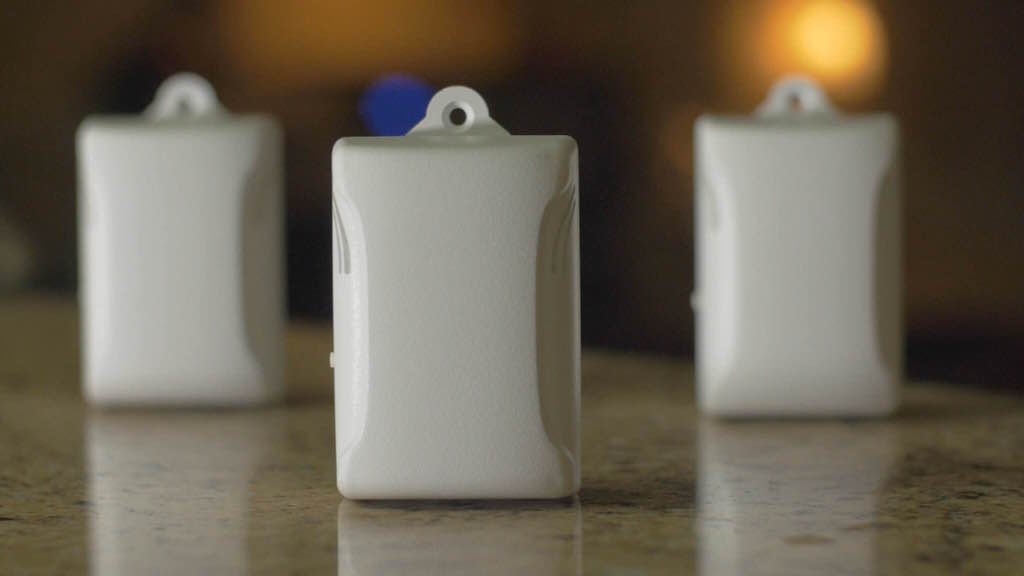Vacation Rental Owners Turn to Noise-Monitoring in Instant Booking Era

Skift Take
With instantly confirmable vacation-rental bookings picking up momentum on sites ranging from Airbnb to HomeAway, owners and property managers are turning to noise-monitoring devices in their homes and other measures to ensure that guests aren't throwing wild parties, conducting porn photoshoots or otherwise behaving badly.
One of the solutions is NoiseAware, which offers a sensor that plugs into a wall outlet and sends notifications via text or email to owners based on decibel or time of day (or night) parameters that are customizable.
David Krauss, Dallas-based NoiseAware's co-founder and CEO, said he came up with the idea for the company in late 2014 after renting one of his properties on Airbnb to a couple of guests who threw "a major party."
Although a police report was filed after noise complaints, Krauss only found out about the issue a couple of days later when the building's lawyers contacted him.
Likening the NoiseAware device and service to a "smoke detector for noise" and "kind of a noise insurance record," Krauss said the service currently has about 80 clients (deploying 200 sensors), including vacation rental aggregator and property manager Vacasa, Playlist Properties of Nashville, Rent Lever in San Francisco, and Carolina Mornings in Asheville, North Carolina. Clients subscribe to the service and hardware for $150-$200 per property annually depending on the property size.
NoiseAware doesn't record what guests are saying inside a rental property so there is a level of privacy, and the company encourages owners to disclose the use of the service in rental agreements, Krauss said.
The service, he argues, also has use cases that might not be immediately obvious. It provides protection against false or misapplied complaints, such as when a neighbor tells authorities that the noise is coming from the owner's property when in fact it is generated by people in another unit, Krauss says. It also can be used as a signal that the tenants or cleaning staff have arrived, or when someone might be in the rental when no one is supposed to be there.
"We are trying to be that front desk in that distributed hotel industry that is growing up around us," says NoiseAware co-founder Andrew Schulz.
Turnkey Vacation Rentals Verifies Identities, Monitors Decibels
On the property management front, Austin-based TurnKey Vacation Rentals wrote its own software and created an Android tablet app that uses its sound-monitoring capabilities to keep track of the decibel levels inside the properties it manages, says co-founder and CEO T.J. Clark.
If the guests' noise levels in the rental unit are "exceedingly loud" then TurnKey will call them to ask the guests to lower the volume. That usually solves the problem, Clark says, and if it doesn't the company has contracted with security services to drive by or visit the unit.
On larger rentals, where the party potential might be higher, TurnKey uses a motion sensor outside the home and a doorbell monitor to detect activity.
"We are going above and beyond because we want instant bookings," Clark says, who adds that the vacation rental booking experience needs to get more standardized to more closely resemble the hotel booking experience.
Under most instantly verifiable booking scenarios, the guest gets immediate confirmation of the reservation but the owner has 24 hours to ensure that everything is up to par with the booking and guests.
In addition to the decibel monitoring and motion detection, TurnKey, which states it manages some 1,700 rentals in 32 markets, uses the IDology identity verification and fraud detection service to screen guests within the 24-hour window, Clark says.
The service runs guests through a series of questions to match identities with credit card information as a way to combat a major problem in the vacation rental industry -- fraud.
The service minimizes the "stolen wallet" issue in vacation rentals where a guest might book a stay using a stolen credit card and driver's license, Clark says.
With Airbnb admitting that racism is a huge problem in its short-term rental platform, Clark says TurnKey's use of this identity verification tool reduces the possibility of racial profiling that could otherwise be involved when property managers or owners feel compelled to conduct a "meet and greet" with the guests at the property.
"What are you going to do when the guests are standing there with their suitcases?" Clark asks. "Think of the potential for racial profiling."
Renting out apartments and homes to guests carries risks and instantly confirmable booking probably increases the perils. But owners and property managers are taking myriad steps using various technologies to limit the risks.





